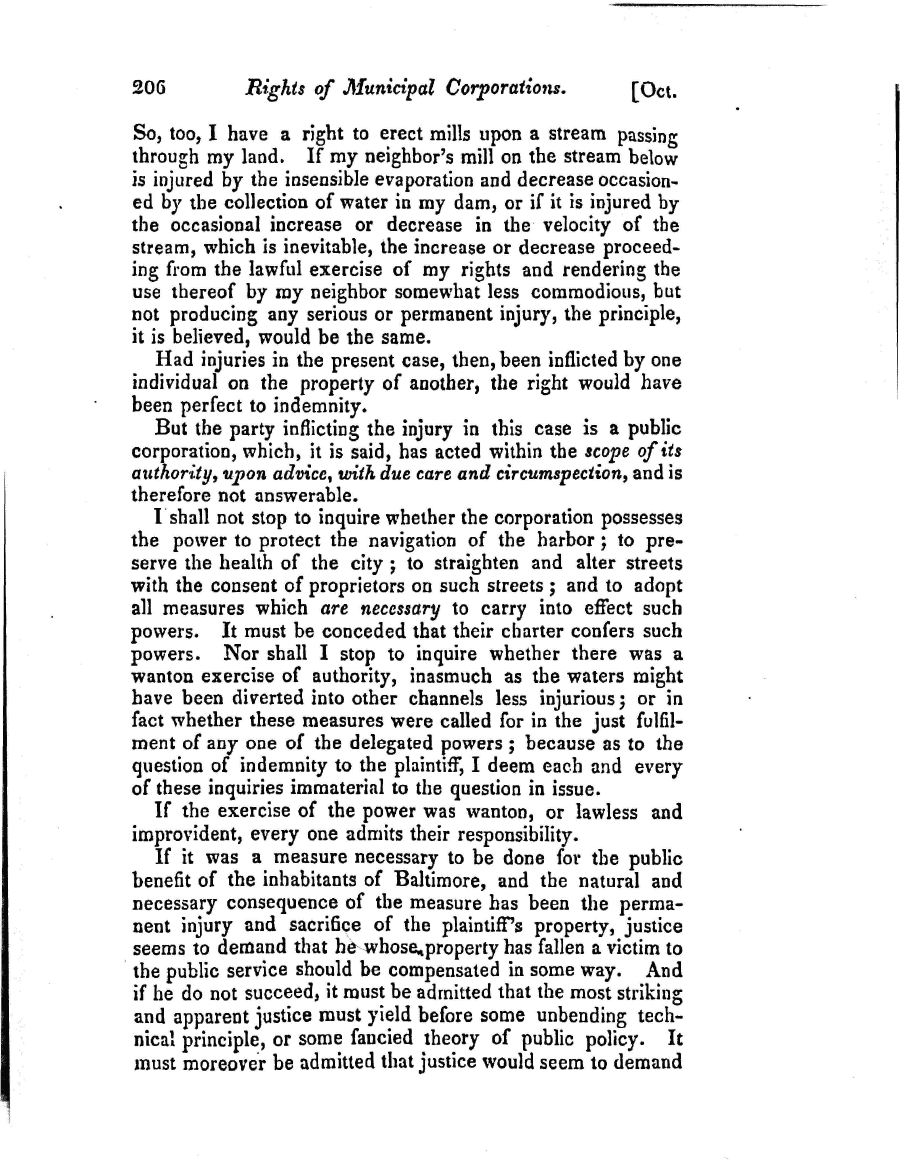|
206 Rights of Municipal Corporations. [Oct.
So, too, I have a right to erect mills upon a stream passing
through my land. If my neighbor's mill on the stream below
is injured by the insensible evaporation and decrease occasion-
ed by the collection of water in my dam, or if it is injured by
the occasional increase or decrease in the velocity of the
stream, which is inevitable, the increase or decrease proceed-
ing from the lawful exercise of my rights and rendering the
use thereof by ray neighbor somewhat less commodious, but
not producing any serious or permanent injury, the principle,
it is believed, would be the same.
Had injuries in the present case, then, been inflicted by one
individual on the property of another, the right would have
been perfect to indemnity.
But the party inflicting the injury in this case is a public
corporation, which, it is said, has acted within the scope of its
authority, upon advice, with due care and circumspection^ and is
therefore not answerable.
I shall not stop to inquire whether the corporation possesses
the power to protect the navigation of the harbor; to pre-
serve the health of the city ; to straighten and alter streets
with the consent of proprietors on such streets ; and to adopt
all measures which are necessary to carry into effect such
powers. It must be conceded that their charter confers such
powers. Nor shall I stop to inquire whether there was a
wanton exercise of authority, inasmuch as the waters might
have been diverted into other channels less injurious 5 or in
fact whether these measures were called for in the just fulfil-
ment of any one of the delegated powers ; because as to the
question of indemnity to the plaintiff, I deem each and every
of these inquiries immaterial to the question in issue.
If the exercise of the power was wanton, or lawless and
improvident, every one admits their responsibility.
If it was a measure necessary to be done for the public
benefit of the inhabitants of Baltimore, and the natural and
necessary consequence of the measure has been the perma-
nent injury and sacriflce of the plaintiff's property, justice
seems to demand that h£ whose^property has fallen a victim to
the public service should be compensated in some way. And
if he do not succeed, it roust be admitted that the most striking
and apparent justice must yield before some unbending tech-
nical principle, or some fancied theory of public policy. It
must moreover be admitted that justice would seem to demand
|

